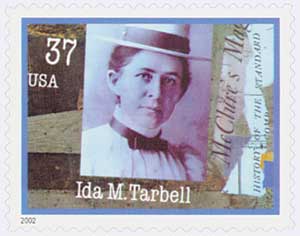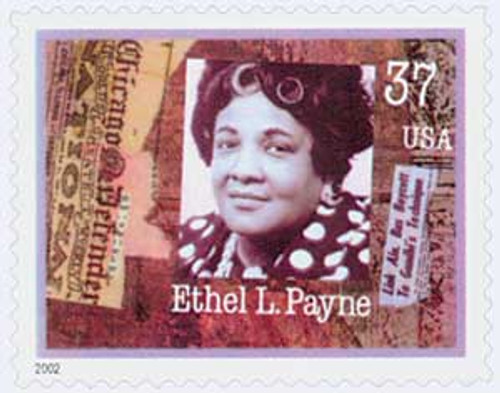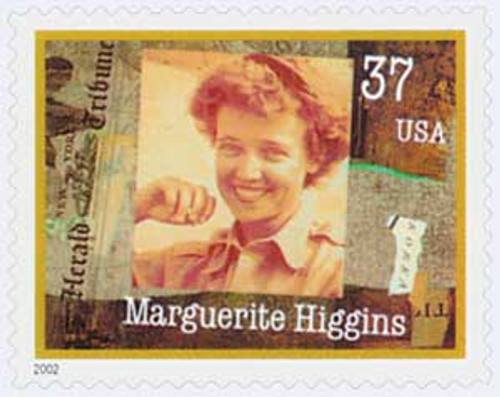
# 3666 FDC - 2002 37c Women in Journalism: Ida M. Tarbell
37¢ Ida Tarbell
Women in Journalism
Color: Multicolored
Birth Of Ida Tarbell
Tarbell’s family moved to Titusville, Pennsylvania, in 1860, after the town had become a large center for oil production. In the coming years, new oil fields were developed in the area, leading many to find work related to oil.
Tarbell’s own father worked building wooden oil storage tanks before becoming an oil producer himself. In 1872 her father and many others were put out of business by the South Improvement Company scheme orchestrated by John D. Rockefeller.
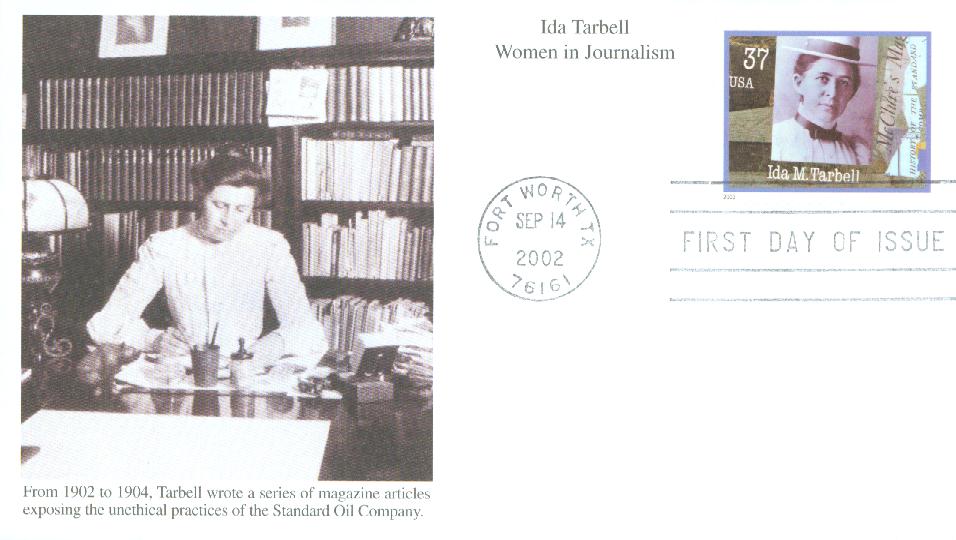
Tarbell graduated from high school at the top of her class before studying biology at Allegheny College. She was the only woman in a class of 41. After graduating in 1880, Tarbell found work as a teacher at the Poland Union Seminar in Ohio. There she taught geology, botany, geometry, trigonometry, Greek, Latin, French, and German. But after two years Tarbell realized she didn’t like teaching as much as writing and decided to become a journalist.
After returning to Pennsylvania, Tarbell was hired to write a teaching guide for home study courses in Chautauqua, New York. By 1886 she was the publication’s editor, with tasks including proofreading, answering reader questions, and translating foreign words.
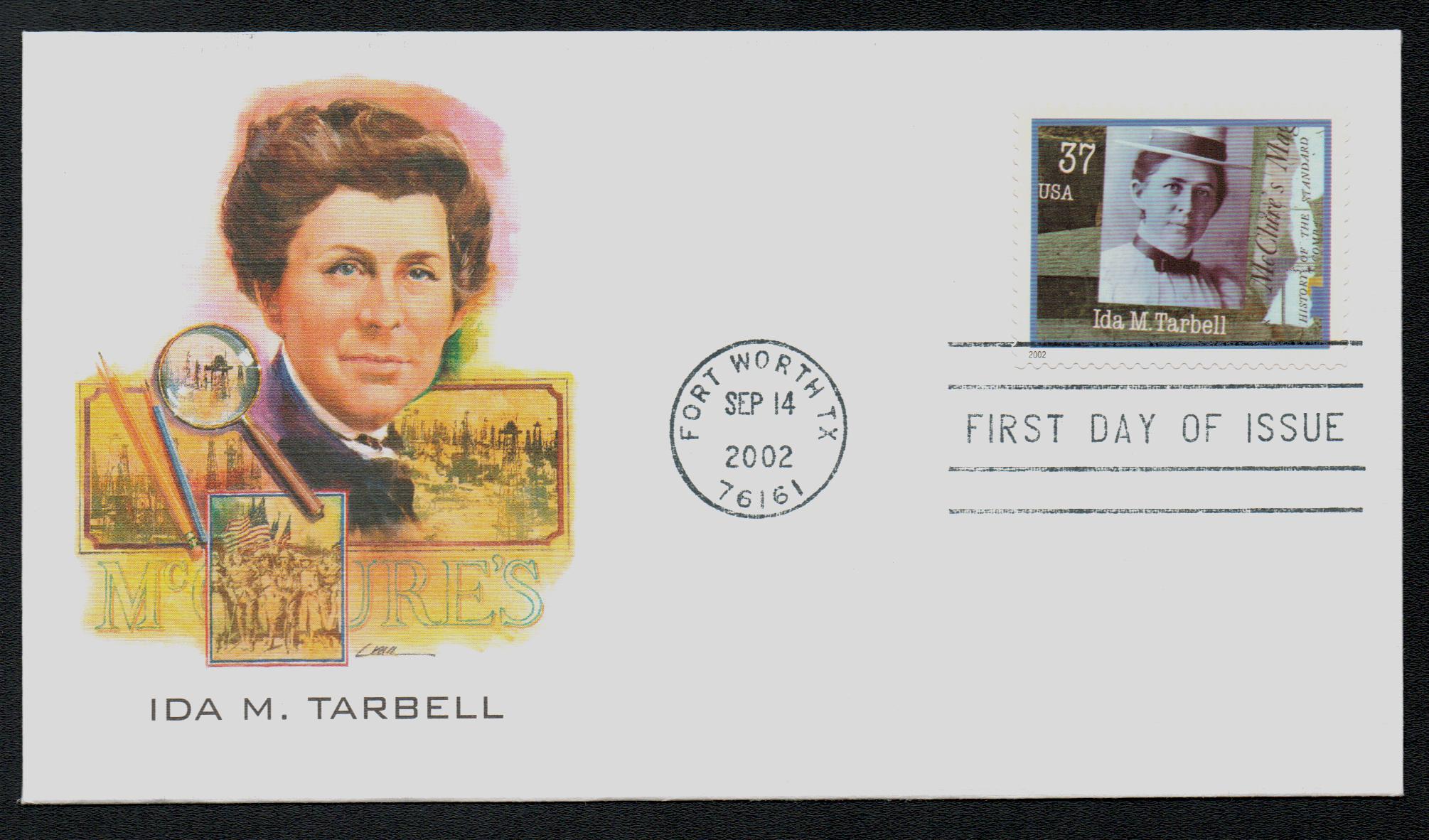
Tarbell then moved to Paris in 1890 to do postgraduate historical research, with a focus on women. Her goal was “to rescue women from the obscurity of history.” One of her primary projects was writing a biography of Madame Roland, who had been an important leader during the French Revolution. She had the rare chance to examine previously unseen sources, including family letters. While in France Tarbell also worked as an editor for McClure’s Magazine, for which she wrote a popular series of stories about Napoleon Bonaparte.
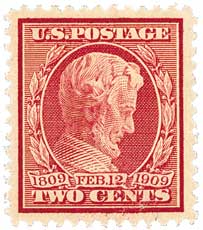
When she returned to America, Tarbell settled for a time in Washington, D.C., to work on a 20-part series on President Abraham Lincoln for McClure’s. Tarbell was the first historian to discover the real facts of Lincoln’s childhood when she investigated his homes in backwoods Kentucky and Illinois herself. These articles proved immensely popular, helping to double McClure’s circulation. Tarbell published a number of books on President Lincoln that earned her national attention and regular spot on the lecture circuit, which offered a captive audience eager to learn new details about the popular president.
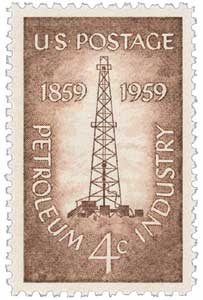
Around 1900, Tarbell began investigating the Standard Oil Company, having a vested interest in the industry since her youth in Pennsylvania. Fellow writer Mark Twain introduced Tarbell to oil magnate Henry H. Rogers who granted her extensive unprecedented interviews. While Rogers was normally very private, he went into great detail, perhaps because he expected she was writing a positive story on him.
However, much of his information formed the basis of a negative exposé Standard Oil and John D. Rockefeller. A form of investigative journalism that was rarely seen at the time supplemented these interviews. Tarbell traveled the country to collect hundreds of thousands of pages of documents to support her story and conduct interviews with oil executives and competitors, government regulators, and other experts.
The first of Tarbell’s 19 stories on Standard Oil appeared in McClure’s in November 1902. Her dramatic retelling of Rockefeller’s practices captured public interest, with readers anxiously awaiting the next installment. Tarbell’s exposé was the first of its kind to focus on a large corporation in this way. After the articles were all published, they were collected into a book, The History of Standard Oil Company. Public outcry over the company’s dubious business practices ultimately led the U.S. government to sue Standard Oil for violation of the nation’s anti-trust laws. Tarbell was touted as a hero of investigative journalism and a symbol of the amazing power of the press.
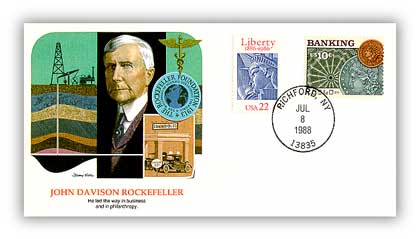
Tarbell continued to write and work for the rest of her life, until her death on January 6, 1944. Her home was made a National Historic Landmark and she was inducted into the national Women’s Hall of Fame. In 1999, New York University selected the History of the Standard Oil Company as the fifth most important work of 20th century American journalism.
Click here to read some of Tarbell’s articles.
37¢ Ida Tarbell
Women in Journalism
Color: Multicolored
Birth Of Ida Tarbell
Tarbell’s family moved to Titusville, Pennsylvania, in 1860, after the town had become a large center for oil production. In the coming years, new oil fields were developed in the area, leading many to find work related to oil.
Tarbell’s own father worked building wooden oil storage tanks before becoming an oil producer himself. In 1872 her father and many others were put out of business by the South Improvement Company scheme orchestrated by John D. Rockefeller.

Tarbell graduated from high school at the top of her class before studying biology at Allegheny College. She was the only woman in a class of 41. After graduating in 1880, Tarbell found work as a teacher at the Poland Union Seminar in Ohio. There she taught geology, botany, geometry, trigonometry, Greek, Latin, French, and German. But after two years Tarbell realized she didn’t like teaching as much as writing and decided to become a journalist.
After returning to Pennsylvania, Tarbell was hired to write a teaching guide for home study courses in Chautauqua, New York. By 1886 she was the publication’s editor, with tasks including proofreading, answering reader questions, and translating foreign words.

Tarbell then moved to Paris in 1890 to do postgraduate historical research, with a focus on women. Her goal was “to rescue women from the obscurity of history.” One of her primary projects was writing a biography of Madame Roland, who had been an important leader during the French Revolution. She had the rare chance to examine previously unseen sources, including family letters. While in France Tarbell also worked as an editor for McClure’s Magazine, for which she wrote a popular series of stories about Napoleon Bonaparte.

When she returned to America, Tarbell settled for a time in Washington, D.C., to work on a 20-part series on President Abraham Lincoln for McClure’s. Tarbell was the first historian to discover the real facts of Lincoln’s childhood when she investigated his homes in backwoods Kentucky and Illinois herself. These articles proved immensely popular, helping to double McClure’s circulation. Tarbell published a number of books on President Lincoln that earned her national attention and regular spot on the lecture circuit, which offered a captive audience eager to learn new details about the popular president.

Around 1900, Tarbell began investigating the Standard Oil Company, having a vested interest in the industry since her youth in Pennsylvania. Fellow writer Mark Twain introduced Tarbell to oil magnate Henry H. Rogers who granted her extensive unprecedented interviews. While Rogers was normally very private, he went into great detail, perhaps because he expected she was writing a positive story on him.
However, much of his information formed the basis of a negative exposé Standard Oil and John D. Rockefeller. A form of investigative journalism that was rarely seen at the time supplemented these interviews. Tarbell traveled the country to collect hundreds of thousands of pages of documents to support her story and conduct interviews with oil executives and competitors, government regulators, and other experts.
The first of Tarbell’s 19 stories on Standard Oil appeared in McClure’s in November 1902. Her dramatic retelling of Rockefeller’s practices captured public interest, with readers anxiously awaiting the next installment. Tarbell’s exposé was the first of its kind to focus on a large corporation in this way. After the articles were all published, they were collected into a book, The History of Standard Oil Company. Public outcry over the company’s dubious business practices ultimately led the U.S. government to sue Standard Oil for violation of the nation’s anti-trust laws. Tarbell was touted as a hero of investigative journalism and a symbol of the amazing power of the press.

Tarbell continued to write and work for the rest of her life, until her death on January 6, 1944. Her home was made a National Historic Landmark and she was inducted into the national Women’s Hall of Fame. In 1999, New York University selected the History of the Standard Oil Company as the fifth most important work of 20th century American journalism.
Click here to read some of Tarbell’s articles.






